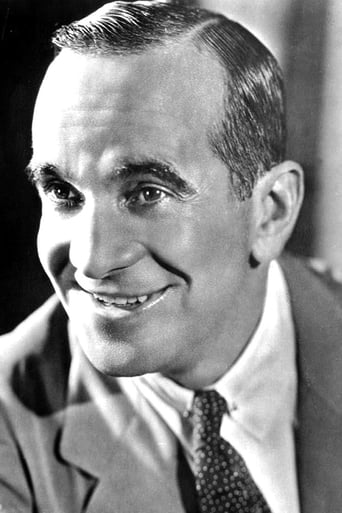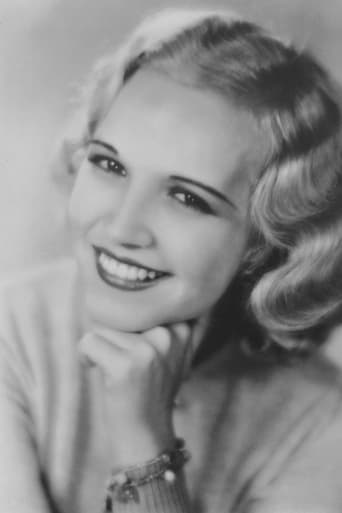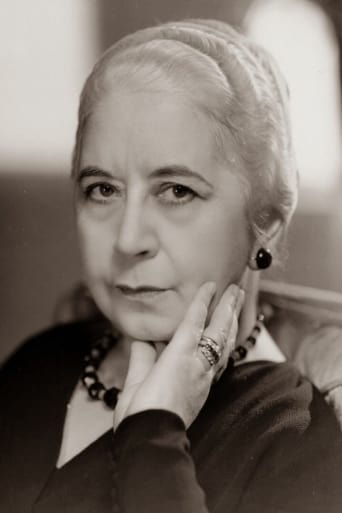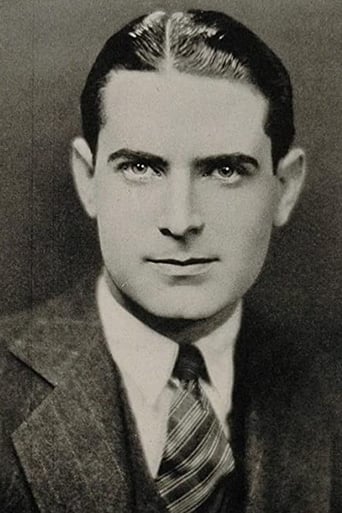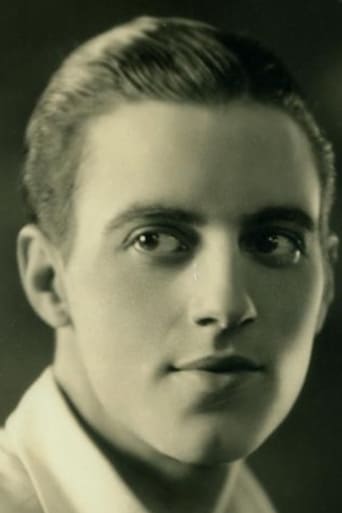mark.waltz
Off camera for possibly only a few minutes during this film version of one of his biggest Broadway hits, All Jolson does all he can to worm his way into the hearts of his fans. His schtick may fate but the urge to smile at least is always there. Even his now taboo if black-face us forgivable, a part of a by-gone era that can never return. When he breaks into traditional Negro spirituals, it is as if his whole soul has been taken over by some spirit of the past, crying out for peace. His rendition of "Tomorrow is Another Day" must have been pretty potent stuff for depression era audiences, and the passion in his singing still strikes today. It is a shame, however, that all movie audiences got with this was an obviously truncated version of what he had done on stage, and it is not memorable for anything else but Jolson's singing.The slight story concerns an alleged Creole stable boy who works past his station, eventually becoming a singing waiter (again!) and later a jockey in the Kentucky Derby. Such respected players as Claudia Dell, Noah Beery and Louise Closser Hale stand up with their dignity intact, but as he admits even here in the script, if you are what you eat, then he is the Easter ham to end all Easter hams. Still, ham sliced thin makes for an awfully nice sandwich.
wes-connors
Descended from slaves, horse trainer Al Jolson (as Gus) wants to ride "Big Boy" all the way to the Kentucky Derby, and help his master's family regain their fortune. Criminal forces conspire to get Mr. Jolson off his high horse, although he is the only one who has a chance to win. Jolson is exceptionally close to his horse, claiming he has, "Greta Garbo's eyes and Clara Bow's legs." Not coincidently, both actresses were ahead of Jolson in Quigley Publications' "Money-Making Stars" for 1930 list. Jolson's #7 position was nothing to scoff at, but fewer people were seeing him in "Big Boy" than in still exhibited hits like "The Singing Fool" (1928).One of the reasons for this film's relative failure may be the original Broadway show's altered and lackluster soundtrack. Jolson was the first in a Crosby/Sinatra/Presley continuum of pop recording artists. But now his usual string of million selling #1 hits was no longer in evidence. The attempt to make "Tomorrow Is Another Day" a hit was unsuccessful. Bing Crosby was taking over.None of the veteran character actors make much of an impression alongside Jolson. Helping more are John Harron (as Joe Warren), who romances pretty Claudia Dell (as Annabel Bedford) while helping her brother Lloyd Hughes (as Jack) and Jolson expose the criminal element. At the end of this film, Jolson is asked to sing "Sonny Boy" but declines - and there is nothing here even remotely approaching the quality of that song. "Big Boy" was also notable in that Jolson plays in "blackface" until appearing as himself in the end. He actually looked better with the darker skin, and sang with dignity, but his white lips are too pronounced in this picture.*** Big Boy (9/11/30) Alan Crosland ~ Al Jolson, Claudia Dell, John Harron, Lloyd Hughes
msladysoul
As a black person viewing this film, it was extremely disturbing for someone of this generation, and I'm sure to black people of that time it was insulting, but what could they do. They had no power to complain. It was politically correct to be racist and insulting of other races back then, because whites were superior and what they said went. They didn't care to take black people's feelings into consideration. Gladly, things have changed. This film couldn't and wouldn't be done today. If you want a black person, get a real black person to play a role, don't black-up a white person and make them look ridiculous and un-naturally black. Blacks aren't just black-face, black people's skin tone range from black, dark brown, brown, light brown, caramel, honey, mocha, yellow, olive, even pale.Of course white people gave this movie positive reviews because its not their race being insulted or offended. These are the reasons why racism, discrimination, bigotry, and prejudice will always exist, because you will always have people who condone the behavior in this movie, by making up excuses like "its not that racist" or "oh, that how it was back then." I'm sure if the shoe was on the other foot, it wouldn't be as amusing.Al Jolson passing as black, portraying a black man, was extremely stereotypical, of course, he would act in that way. He wouldn't act educated or with class or sense, whites wouldn't want to see that, naturally Jolson would roll the eyes and act a fool, sing of the lord, and carry watermelons, white people wouldn't have had it any other way. Jolson doesn't represent positive blackness to me, but of course whites think he did a great job portraying a black, because that's how they view us.I read how some people say Jolson didn't act like an "uncle tom" so that should give some relief, well like I said he was still very stereotypical, and of course he could talk sassy and tough to some whites, because it was known he was white, so he could get away with it. If he was really black, he wouldn't have been able to talk up to whites on screen that way. When Jolson looks at the white woman that walks pass him when he's singing at the club, you know if he really was black, that part would have been cut from the film. If Jolson really wanted to make blacks look good and if he didn't mean no harm, he could have portrayed the new era of black people, not stereotypical, Southern, shuffling, yes-sir black, but the northern, Harlem black, bold, head up, educated, glamorous, ambitious, listen to Ethel Waters, "Underneath a Harlem Moon." The only true portrayal in this movie is the racist Southern man who says all kind of racial insults.I hate to see how blacks, native Americans, asians have been treated in the movies back then. Its making it harder for me to watch these old classic movies, especially since the racism is so obvious and blatant. Whites were always superior and well-behaved, while people of color were made fun of, inferior, and not as well-behaved as whites, now we know the "white lies" and that whites weren't so perfect, but whites always put themselves in the best light back then.From what I know about Jolson, he seemed to have been influenced by blacks, which you can see in his singing and dancing. Possibly, his dressing up in black-face was a way to become a black man to him. I've seen minstrel shows from back then and seen many black-face comedians, and found them insulting and offensive and they knew they were, but like I said it was okay to make fun of blacks back then, but with Al Jolson it seems he really wanted to be black, even though his portrayal was negative. Maybe with this film he was trying to show the ignorance of white racism by becoming a black man, of course the audience knew he was really white, but by becoming black, maybe he's trying to show whites it could have been you who could have been black, so how would you like to have been mistreated? Perhaps he was also showing how blacks always had to come to save the day for white people.Anyways, this movie was ridiculous. Jolson was supposedly the greatest entertainer in the world in his time, well, maybe he would be more remembered mainstream and appreciated by everyone if it wasn't for the black-face. I hear talk of Judy Garland, Sinatra, and others, but not much talk of Jolson, I suppose its because of the black-face. If white audiences enjoyed the play or the movie Big Boy, its because Jolson reassured them with his stereotypical black person, that blacks were everything whites thought or wanted them to be.I try to put myself back in the 1930's, and still was offended, as I'm sure many blacks were back then, but like I said they had no say. I read black newspapers of that time, and they were disgusted by the film. A lot of whites get offended when black comedians like Chris Rock make fun of them, well maybe now you know how blacks felt seeing Cantor and Jolson. Some may say, Eddie Cantor and Jolson were appealing to the tastes back then, so you mean they were appealing to whites love of seeing people of color made fun of? None of them had the balls to stand up and say I'm not doing that? Doing blackface don't make you a greater entertainer.hotoil, said blacks didn't have leading roles back then. This movie was made in 1930, in 1929, Nina Mae McKinney, a black actress, starred in one of the first black films, and then there was Hearts of Dixie, another black film made in 1928. So there were blacks in starring roles.
